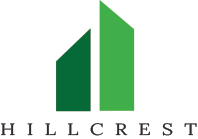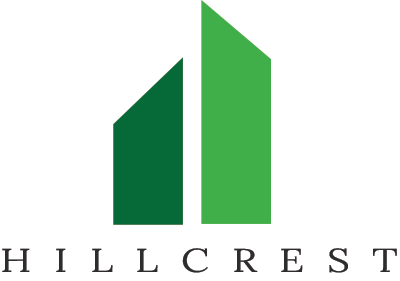Every now and then, homeowners in an HOA might encounter a special assessment. This differs from regular fees, which are paid on a monthly, quarterly, or yearly basis. Homeowners associations usually charge a special assessment to cover a shortfall in the budget, but it should not happen often.
What is an HOA Special Assessment?
Special assessments are one-time fees that an HOA charges to homeowners. These assessments are used to cover a budget deficit or an emergency expense. It differs from regular dues, which are also sometimes called regular assessments.
What are HOA Assessments?
Homeowners association assessments fall under two categories: regular and special. Regular assessments, more commonly known as regular dues or fees, are paid on a monthly, quarterly, or yearly basis. The HOA uses regular dues to cover operating expenses as part of the budget.
In contrast, a special assessment is an extra fee that an HOA charges infrequently. An HOA should not need to charge special assessments very often, especially if the association is in good financial health.
 What is a Condominium Special Assessment?
What is a Condominium Special Assessment?
Just like single-family HOAs, condominiums also have financial needs. Condo associations must pay for common expenses, and condo fees typically cover these costs. When there is a need for additional funding for whatever reason, condo associations charge special assessments to unit owners.
Are HOA Special Assessments Legal?
In general, yes, special assessments in an HOA are legal. That said, not all associations have the authority to charge this fee. Whether or not a specific HOA can do so depends on state laws and its governing documents.
Is There a Cap on HOA Special Assessments in Chicago?
Some states and governing documents limit the amount an HOA can charge in special assessments. Although there is no such limit in Chicago, there are regulations in place that control special assessments.
In Illinois, according to 765 ILCS 160/1-45, if the board adopts a special assessment that causes the total amount homeowners must pay for the year to exceed 115% of what was paid the previous year, the members have the right to challenge it. This total includes special assessments, too.
To challenge the assessment, at least 20% of the total voting members must submit a written petition to the board within 14 days of the board’s decision. Upon receiving the petition, the board must hold a meeting within 30 days to discuss the assessment.
At that meeting, if a majority of the total voting power of the association votes to reject the increase, it is canceled. But if the majority does not vote against it, the special assessment is considered approved and remains in effect.
Similar provisions exist under the Illinois Condominium Property Act (765 ILCS 605/18).
HOA Special Assessment Rules
There may be rules and requirements that govern special assessments in HOAs. It is important for board members to review applicable state laws and their governing documents.
Notice Requirements
Many associations must provide proper notice to members for special assessments. Both state laws and the governing documents may address notice requirements.
According to 765 ILCS 160/1-45, before adopting a special assessment, the board must give every member a copy of the proposed assessment at least 30 days but not more than 60 days before the adoption.
HOA Special Assessment Limit
As discussed above, Illinois law provides homeowners with a way to challenge special assessments if they exceed a certain point. Similar laws may exist in other states, with some even providing a hard limit on the amount.
Additionally, the governing documents of an HOA may place caps or requirements for approval when special assessments go beyond a certain amount or percentage. Board members should always ensure legal compliance to avoid liability.
Emergency Assessments
 According to 765 ILCS 160/1-45, an HOA board may approve special assessments without a homeowner vote if the money is needed for:
According to 765 ILCS 160/1-45, an HOA board may approve special assessments without a homeowner vote if the money is needed for:
- An emergency; or,
- Something that the law requires.
An emergency means that there’s a serious risk to the structure of common areas, such as a collapsing roof or failing foundation. It can also constitute a situation that puts the lives of residents at risk (either in terms of safety or health).
Triggers for an HOA Special Assessment
Why would a homeowners association even need to charge a special assessment? There are a few possible reasons, including inaccurate projections leading to a budget shortfall, increasing costs, unforeseen circumstances, and a high delinquency rate.
- Inaccurate Projections. If the HOA board fails to project expenses accurately, it can lead to a budget deficit. When regular dues can’t cover the shortfall, special assessments will have to step in.
- Increasing Costs. Sometimes, the budget deficit isn’t a result of inaccurate projections or improper budgeting. Economic factors, such as the rising cost of goods and services, can lead to surprises in expenses and vendor fees.
- Unforeseen Circumstances. Emergencies, such as natural disasters, can happen. Although insurance should be an HOA’s first line of defense, it’s not unheard of for an HOA to require special assessments to cover the rest of its emergency expenses.
- High Delinquency Rate. Homeowners defaulting on their regular dues can also lead to a deficit in the budget. This will force the board to take other measures to cover the loss, such as levying special assessments.
How Often Should Special Assessments in HOA Occur?
Special assessments should not happen often. Ideally, the HOA board would plan the budget well and allocate expenses wisely. Barring any emergencies and assuming homeowners pay on time, there should not be a need to charge a special assessment.
If homeowners find that their HOA is levying special assessments too frequently, it’s a good idea to dig deeper. Requesting to examine the financial records and statements of the HOA is a start. From there, homeowners can understand how the HOA is spending its money and how the board is managing finances.
Are HOA Special Assessments Tax-Deductible?
In general, for those who live in their homes and use them as their primary residence, special assessments are not tax-deductible. That said, certain expenses related to homeownership may be deductible, such as mortgage interest and real estate taxes.
If a homeowner rents out their home, special assessments may be tax-deductible in some cases. Special assessments that go into the repairs and maintenance to restore the property to its original condition are usually tax-deductible.
Advice for All
Although a special assessment isn’t always a bad sign, too much of it does raise concerns over an HOA’s finances. Homeowners should stay vigilant, while board members should practice transparency and proper financial management.
Hillcrest offers HOA financial management services to communities in Chicago. Call us today at 630-627-3303 or contact us online to request a proposal!
RELATED ARTICLES:
- HOA Accounting For Board Members
- Who Pays HOA Renter Or Owner? HOA Dues Payment Rules For Renters
- Illinois Condominium Property Act: What Every HOA Board Should Know




